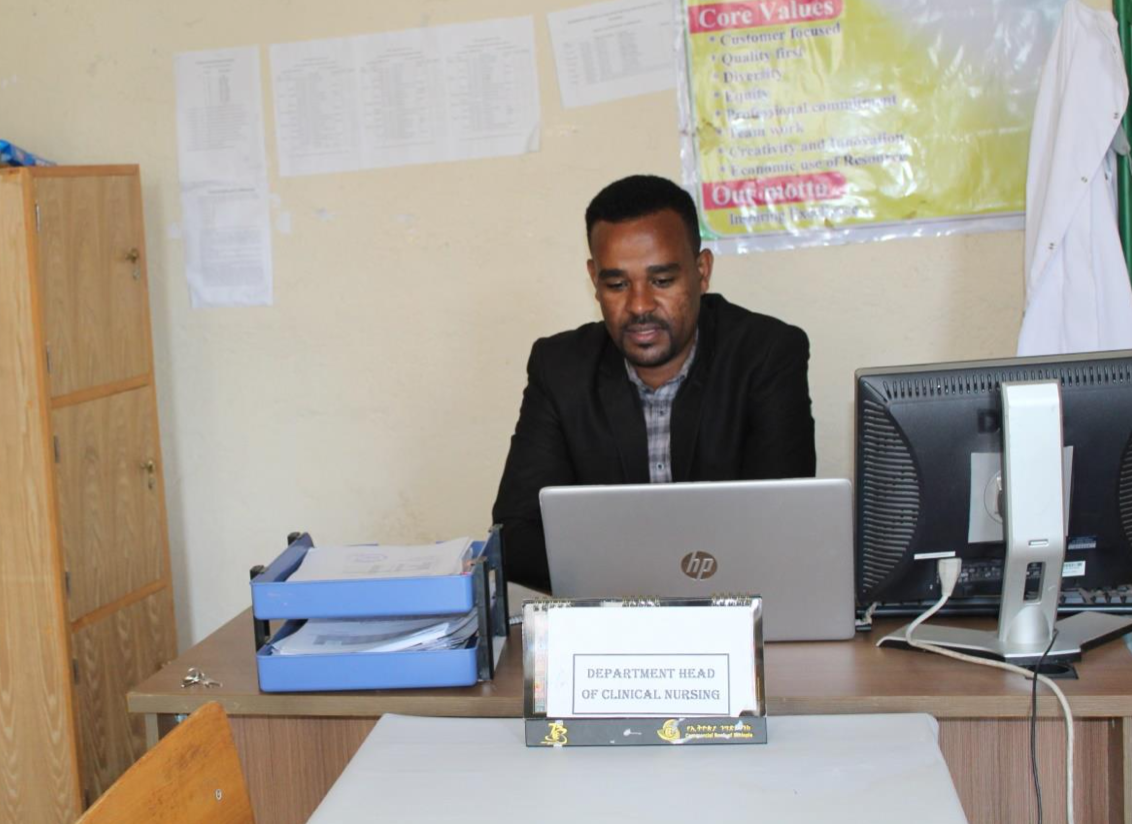
Merga Bayu (MSc)
Head, Nursing Department
Nursing is a profession that focuses on the promotion of health, while affirming the dignity and worth of the individual self-care and community or environmental care. Nursing helps individuals continuously to know and meet their own therapeutic self-care demands through health maintenance. Nursing care is based on professional standards, ethics, competencies and knowledge drawn from the natural, social, biological sciences and the humanities, as well as nursing’s own body of knowledge.
Nursing department is one of the departments under the faculty of health sciences. The department is led by the head department delegated based on RMC’s legislation. In the department there is be established departmental academic council (DAC), which is highest body in the department on academic matters and having the composition, powers and duties. The DAC have Curriculum and Quality assurance for undergraduate programs, Examination and Research and community service subcommittee. The DAC, when it deems necessary, may appoint ad-hoc subcommittees, whose membership may be drawn from among itself or other staff members of the department, to perform specific tasks. The powers and duties of DAC as well as the head of the department are explained in detail in the Rehoboth medical college legislation.
Nursing Educational Philosophy: In nursing education and training, we believe that the nurses are required to acquire a complex mix of knowledge, skills and attitudes; they are expected to be able to synthesize and apply their learning to new and often demanding situations, they are also expected to be lifelong learners, acquiring and utilizing skills and attitudes such as study skills and self-motivation throughout their working lives, working in a constantly changing environment, adapt their knowledge to meet expectations from a range of people. It is also viewed as helping learners become intelligent and critical citizens in a democratic society.
The purpose of nursing education: is to transmit worthwhile bodies of information to generations of learners so that that which is worthwhile is conserved.
The goal of nursing education: is to instill in learners the academic and moral knowledge which should constitute those ‘essential things that a mature adult need to know in order to be a productive member of society.
Curriculum model: The curriculum model of comprehensive nursing education is predominately outcomes-based education (product model) and constructive alignment. It is more integrated learner-centered and community-oriented approaches.
Core competencies of nursing: the core competencies or thematic area are Socio-cultural and public health context of nursing profession, professional, ethical & legal practice of nursing, comprehensive nursing care and practice, communication and collaboration, leadership and management, evidence-based practice and research and educational and professional development.
Program goal: To equip nurses with a complex mix of knowledge, skills and attitudes and preparing competent graduate nurses to their professional roles expected in the broader society.
Specific programme objectives/outcomes: To prepare competent graduate nurses who are able to:
Role of professional nurses:
Care provider: caring /creating comfortable media for the client.
Communicator/Helper: identify patient problem and then communicate these verbally or in writing to other members of multi-disciplinary team.
Teacher/educator: help the patients to learn about their health and health care procedures. Also, teach other member of multi-disciplinary team to share expert knowledge.
Counselor: helping a client to recognize and cope with stressful psychological or social problem, develop improved interpersonal relationships and promote personal growth.
Client advocate: being side of a client. protect patient and their human right.
Change agent: initiating changes or assisting others in making modification in themselves or in the system.
Leader: helping a client to make decision in establishing and achieving goals to improve the client well being.
Manager: planning, giving direction, developing staff, monitoring operations, giving rewards fairly and representing both staff member and administration as needed.
Researcher: doing researches, dissertations and publications.